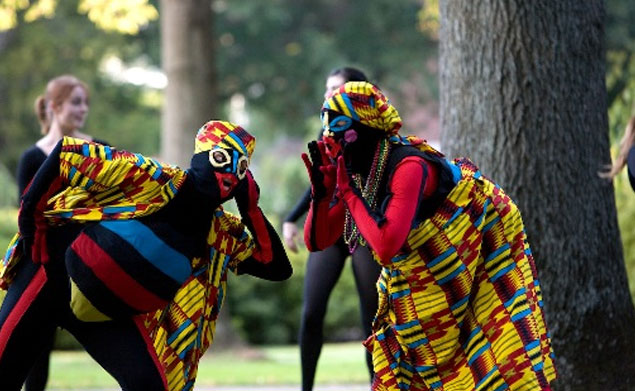
Most North American children learn moral lessons through cartoons and story books, however, in the Caribbean, we learn these lessons through folktales passed on to us by our elders. As a child growing up, I couldn’t wait for my grandmother to tell me Anansi stories. I marvelled at its/his cleverness, envied its/ his seemingly indestructibleness and admired its/his ability to use cunningness as a survival mechanism. For every new Anansi story I was told, I could not wait to gather the other kids under the mango tree behind the school yard to brag about them. To retell these stories, was to live vicariously through Anansi’s character. I felt as if I too possessed it’s/his abilities and I pretty sure my classmates thought the same.
As a child, I never questioned the orijin or purpose behind these stories that were seemingly about a spider, although in all descriptions and characteristics he was human. Instead, I accepted them as an exciting tale about a quick-witted spider/man, who was able to get things done by any means; even if it meant engaging in trickery and cunningness. Despite Anasi’s cleverness and wisdom, my grandmother always made a point at the end of each story to show that the often dishonest tactics he employed always backfired and that honesty and sincerely always prevailed.
Anansi stories (also spelled Ananse or Anancy and referred to as Kwaku Ananse) were brought to the Caribbean by our West African ancestors during slavery. Rooted in the traditions of Ashanti people in Ghana, Anansi stories provided as a means of temporary escape for captured slaves in the Caribbean. Just like Anansi, many slaves had to employ their wit, unconventional skills and wisdom in order to survive.
To this day, Anansi stories still play an important role in storytelling and the formation of morals in most Caribbean islands. While the context of many of these stories have inevitability been altered to fit the various cultural traditions and practices inherent to the different Caribbean communities, the core elements, such as the animal/human like nature of Anansi, his intelligence, trickery, wisdom and character flaws, all remain the same.
As a child who grew up with Anansi stories, the North American equivalents such the the character Wile Coyote, never seemed compelling enough. They lacked the dept, complexity and variety Anansi possessed. I admired him for his wisdom and intelligence while at the same time, I feared the outcome of his deceit and trickery. He was a hero and a villain and his seeming indestructibly provided as a means of hope.
Through the retelling on Anansi stories, I was able to cultivate invaluable oratory skills. The preservation and continuation of Anansi stories helps to serve as a means of connecting us in the Caribbean to our African ancestors. It also helps to demonstrate the importance of history and culture in the cultivation of morals and values. Time and distance are inevitable factors for people throughout African Diaspora, however, folktales and oral traditions like that of Anansi, helps to maintain our connectedness.
Watch some Popular Anansi Stories
Random
Latest posts by Nekita (see all)
- Before Rihanna there was Grace Jones - December 27, 2014
- Marimba: Expression of Freedom, yet my Afro-Ecuadorians… - December 25, 2014
- Who Makes Claim to Being the Reggae Capital of the World? - December 24, 2014




